Step 1 is to add LCD and some analog interface to my CC3200MOD board. Schematics link.
CC3200 SimpleLink Wi-Fi and Internet-of-Things solution, a Single-Chip Wireless MCU.
Another CC3200MOD board has arrived as well.
SimpleLink Wi-Fi CC3200 module LaunchPad
Going wireless is fun. My new toys have arrived.
The next step is to set my pins in the code. Ti has a very handy tool for pin assignments Ti Pin Mux ToolPin Mux Tool.
The following are screen shots of the PinMax tool for the project:
Pin assignments for GPIO:
Pin assignments for I2C:
Pin assignments for SPI:
Pin assignments for UART:
The result is:
//*****************************************************************************
// pin_mux_config.c
//
// configure the device pins for different signals
//
// Copyright (C) 2014 Texas Instruments Incorporated - http://www.ti.com/
//
//
// Redistribution and use in source and binary forms, with or without
// modification, are permitted provided that the following conditions
// are met:
//
// Redistributions of source code must retain the above copyright
// notice, this list of conditions and the following disclaimer.
//
// Redistributions in binary form must reproduce the above copyright
// notice, this list of conditions and the following disclaimer in the
// documentation and/or other materials provided with the
// distribution.
//
// Neither the name of Texas Instruments Incorporated nor the names of
// its contributors may be used to endorse or promote products derived
// from this software without specific prior written permission.
//
// THIS SOFTWARE IS PROVIDED BY THE COPYRIGHT HOLDERS AND CONTRIBUTORS
// "AS IS" AND ANY EXPRESS OR IMPLIED WARRANTIES, INCLUDING, BUT NOT
// LIMITED TO, THE IMPLIED WARRANTIES OF MERCHANTABILITY AND FITNESS FOR
// A PARTICULAR PURPOSE ARE DISCLAIMED. IN NO EVENT SHALL THE COPYRIGHT
// OWNER OR CONTRIBUTORS BE LIABLE FOR ANY DIRECT, INDIRECT, INCIDENTAL,
// SPECIAL, EXEMPLARY, OR CONSEQUENTIAL DAMAGES (INCLUDING, BUT NOT
// LIMITED TO, PROCUREMENT OF SUBSTITUTE GOODS OR SERVICES; LOSS OF USE,
// DATA, OR PROFITS; OR BUSINESS INTERRUPTION) HOWEVER CAUSED AND ON ANY
// THEORY OF LIABILITY, WHETHER IN CONTRACT, STRICT LIABILITY, OR TORT
// (INCLUDING NEGLIGENCE OR OTHERWISE) ARISING IN ANY WAY OUT OF THE USE
// OF THIS SOFTWARE, EVEN IF ADVISED OF THE POSSIBILITY OF SUCH DAMAGE.
//
//*****************************************************************************
// This file was automatically generated on 3/15/2016 at 12:31:19 AM
// by TI PinMux version 3.0.625
//
//*****************************************************************************
#include "pin_mux_config.h"
#include "hw_types.h"
#include "hw_memmap.h"
#include "hw_gpio.h"
#include "pin.h"
#include "gpio.h"
#include "prcm.h"
//*****************************************************************************
void PinMuxConfig(void)
{
//
// Enable Peripheral Clocks
//
PRCMPeripheralClkEnable(PRCM_ADC, PRCM_RUN_MODE_CLK);
PRCMPeripheralClkEnable(PRCM_UARTA0, PRCM_RUN_MODE_CLK);
PRCMPeripheralClkEnable(PRCM_GSPI, PRCM_RUN_MODE_CLK);
PRCMPeripheralClkEnable(PRCM_I2CA0, PRCM_RUN_MODE_CLK);
PRCMPeripheralClkEnable(PRCM_GPIOA0, PRCM_RUN_MODE_CLK);
PRCMPeripheralClkEnable(PRCM_GPIOA1, PRCM_RUN_MODE_CLK);
PRCMPeripheralClkEnable(PRCM_GPIOA2, PRCM_RUN_MODE_CLK);
PRCMPeripheralClkEnable(PRCM_GPIOA3, PRCM_RUN_MODE_CLK);
//
// Configure PIN_58 for ADC0 ADC_CH1
//
PinTypeADC(PIN_58, PIN_MODE_255);
//
// Configure PIN_59 for ADC0 ADC_CH2
//
PinTypeADC(PIN_59, PIN_MODE_255);
//
// Configure PIN_55 for UART0 UART0_TX
//
PinTypeUART(PIN_55, PIN_MODE_3);
//
// Configure PIN_57 for UART0 UART0_RX
//
PinTypeUART(PIN_57, PIN_MODE_3);
//
// Configure PIN_08 for SPI0 GSPI_CS
//
PinTypeSPI(PIN_08, PIN_MODE_7);
//
// Configure PIN_05 for SPI0 GSPI_CLK
//
PinTypeSPI(PIN_05, PIN_MODE_7);
//
// Configure PIN_06 for SPI0 GSPI_MISO
//
PinTypeSPI(PIN_06, PIN_MODE_7);
//
// Configure PIN_07 for SPI0 GSPI_MOSI
//
PinTypeSPI(PIN_07, PIN_MODE_7);
//
// Configure PIN_01 for I2C0 I2C_SCL
//
PinTypeI2C(PIN_01, PIN_MODE_1);
//
// Configure PIN_02 for I2C0 I2C_SDA
//
PinTypeI2C(PIN_02, PIN_MODE_1);
//
// Configure PIN_50 for GPIO Output
//
PinTypeGPIO(PIN_50, PIN_MODE_0, false);
GPIODirModeSet(GPIOA0_BASE, 0x1, GPIO_DIR_MODE_OUT);
//
// Configure PIN_60 for GPIO Output
//
PinTypeGPIO(PIN_60, PIN_MODE_0, false);
GPIODirModeSet(GPIOA0_BASE, 0x20, GPIO_DIR_MODE_OUT);
//
// Configure PIN_61 for GPIO Output
//
PinTypeGPIO(PIN_61, PIN_MODE_0, false);
GPIODirModeSet(GPIOA0_BASE, 0x40, GPIO_DIR_MODE_OUT);
//
// Configure PIN_62 for GPIO Output
//
PinTypeGPIO(PIN_62, PIN_MODE_0, false);
GPIODirModeSet(GPIOA0_BASE, 0x80, GPIO_DIR_MODE_OUT);
//
// Configure PIN_63 for GPIO Output
//
PinTypeGPIO(PIN_63, PIN_MODE_0, false);
GPIODirModeSet(GPIOA1_BASE, 0x1, GPIO_DIR_MODE_OUT);
//
// Configure PIN_64 for GPIO Output
//
PinTypeGPIO(PIN_64, PIN_MODE_0, false);
GPIODirModeSet(GPIOA1_BASE, 0x2, GPIO_DIR_MODE_OUT);
//
// Configure PIN_03 for GPIO Output
//
PinTypeGPIO(PIN_03, PIN_MODE_0, false);
GPIODirModeSet(GPIOA1_BASE, 0x10, GPIO_DIR_MODE_OUT);
//
// Configure PIN_04 for GPIO Output
//
PinTypeGPIO(PIN_04, PIN_MODE_0, false);
GPIODirModeSet(GPIOA1_BASE, 0x20, GPIO_DIR_MODE_OUT);
//
// Configure PIN_15 for GPIO Output
//
PinTypeGPIO(PIN_15, PIN_MODE_0, false);
GPIODirModeSet(GPIOA2_BASE, 0x40, GPIO_DIR_MODE_OUT);
//
// Configure PIN_16 for GPIO Output
//
PinTypeGPIO(PIN_16, PIN_MODE_0, false);
GPIODirModeSet(GPIOA2_BASE, 0x80, GPIO_DIR_MODE_OUT);
//
// Configure PIN_17 for GPIO Output
//
PinTypeGPIO(PIN_17, PIN_MODE_0, false);
GPIODirModeSet(GPIOA3_BASE, 0x1, GPIO_DIR_MODE_OUT);
//
// Configure PIN_18 for GPIO Output
//
PinTypeGPIO(PIN_18, PIN_MODE_0, false);
GPIODirModeSet(GPIOA3_BASE, 0x10, GPIO_DIR_MODE_OUT);
//
// Configure PIN_20 for GPIO Output
//
PinTypeGPIO(PIN_20, PIN_MODE_0, false);
GPIODirModeSet(GPIOA3_BASE, 0x20, GPIO_DIR_MODE_OUT);
//
// Configure PIN_21 for GPIO Output
//
PinTypeGPIO(PIN_21, PIN_MODE_0, false);
GPIODirModeSet(GPIOA3_BASE, 0x2, GPIO_DIR_MODE_OUT);
//
// Configure PIN_53 for GPIO Output
//
PinTypeGPIO(PIN_53, PIN_MODE_0, false);
GPIODirModeSet(GPIOA3_BASE, 0x40, GPIO_DIR_MODE_OUT);
}
 Roman
Roman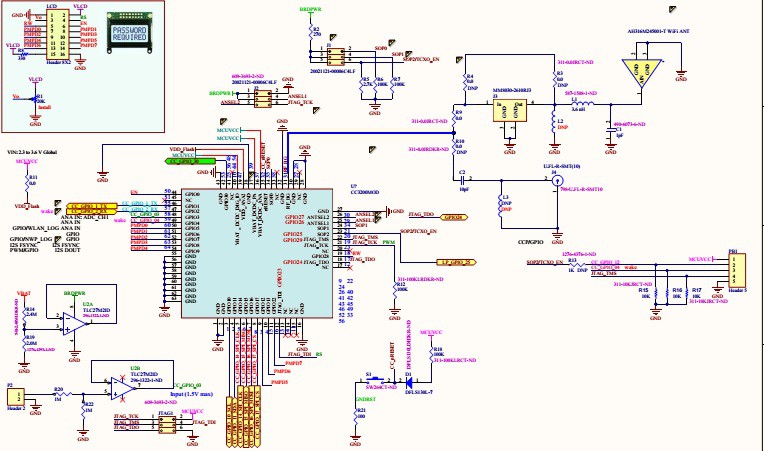
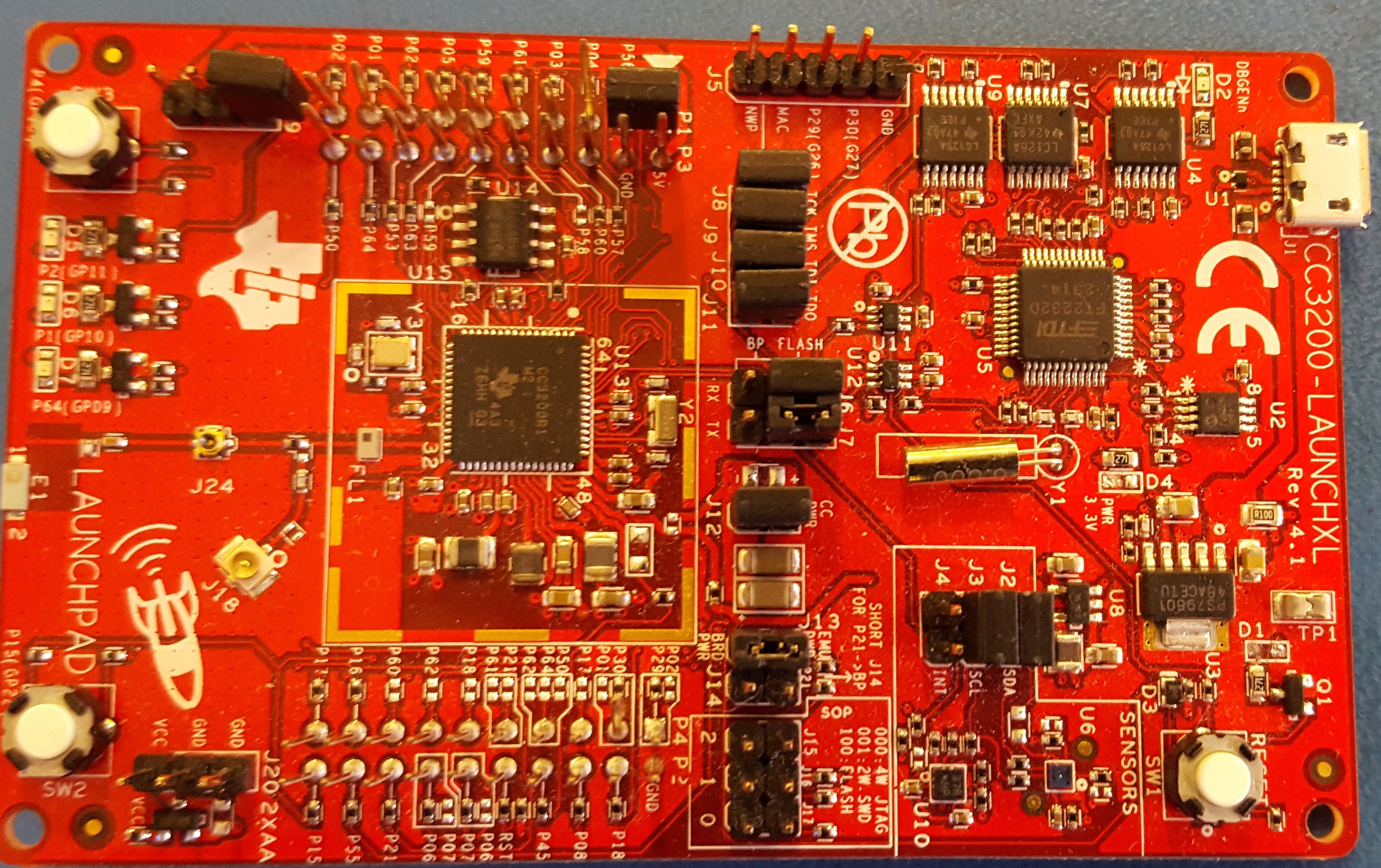
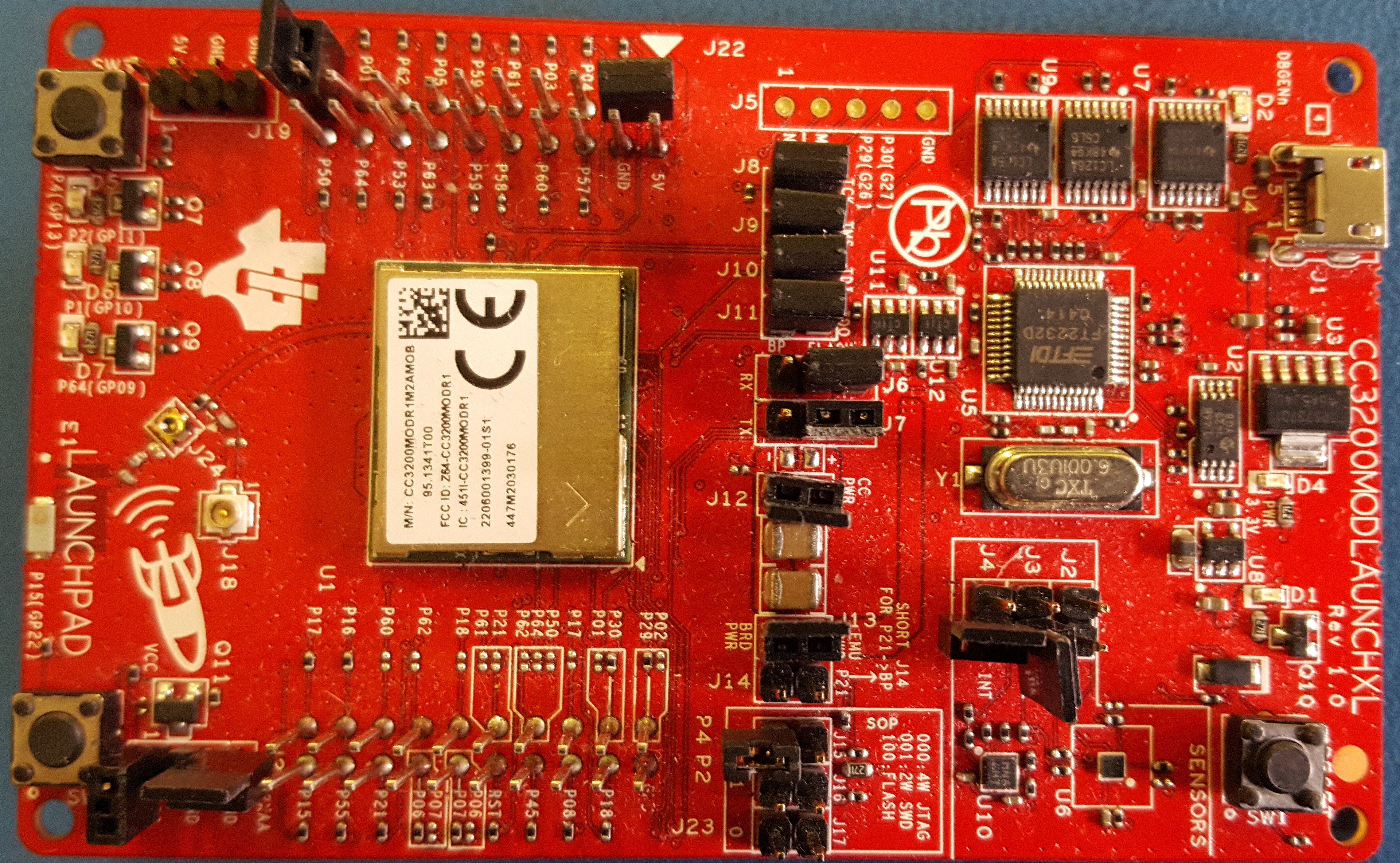
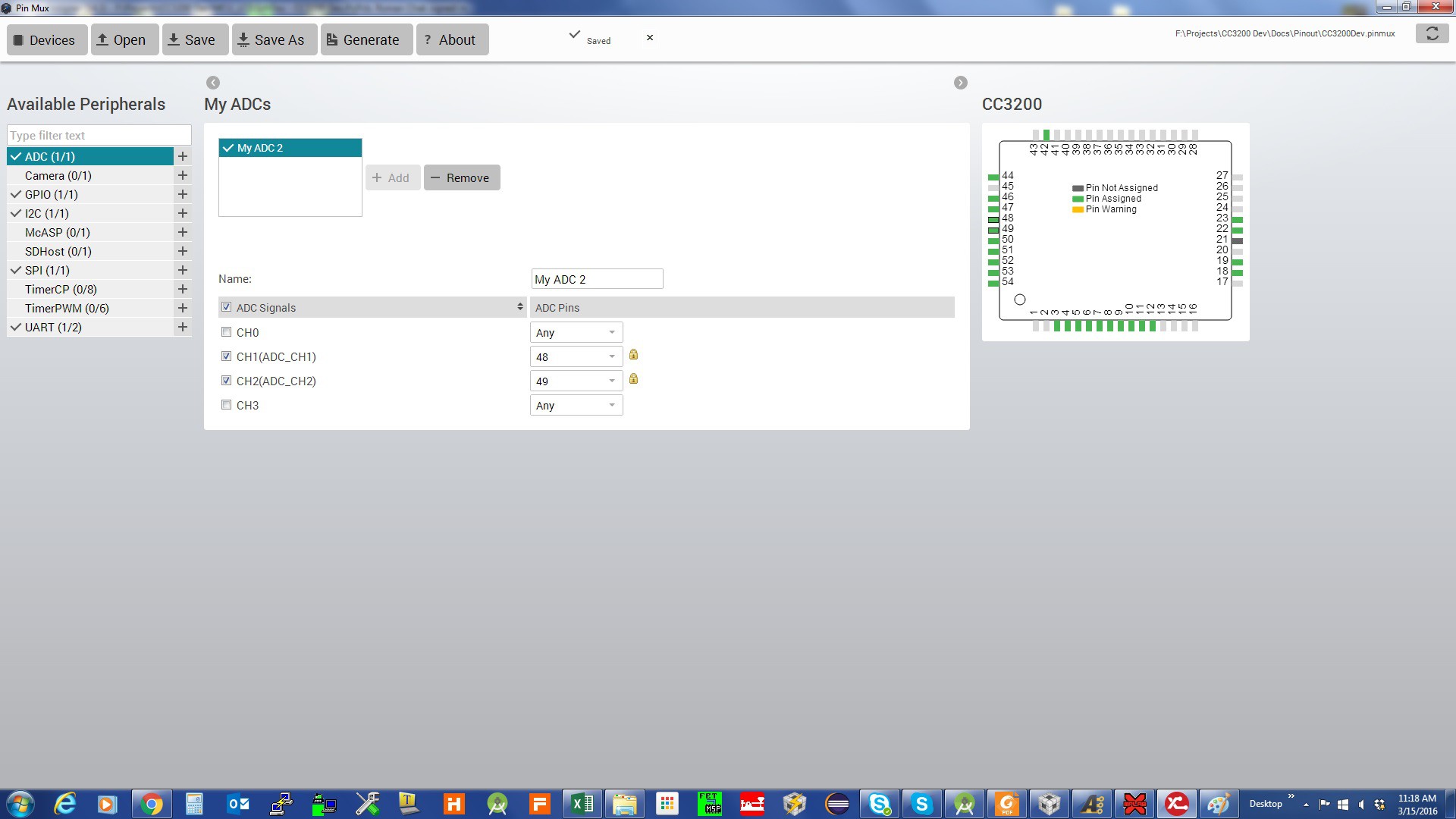
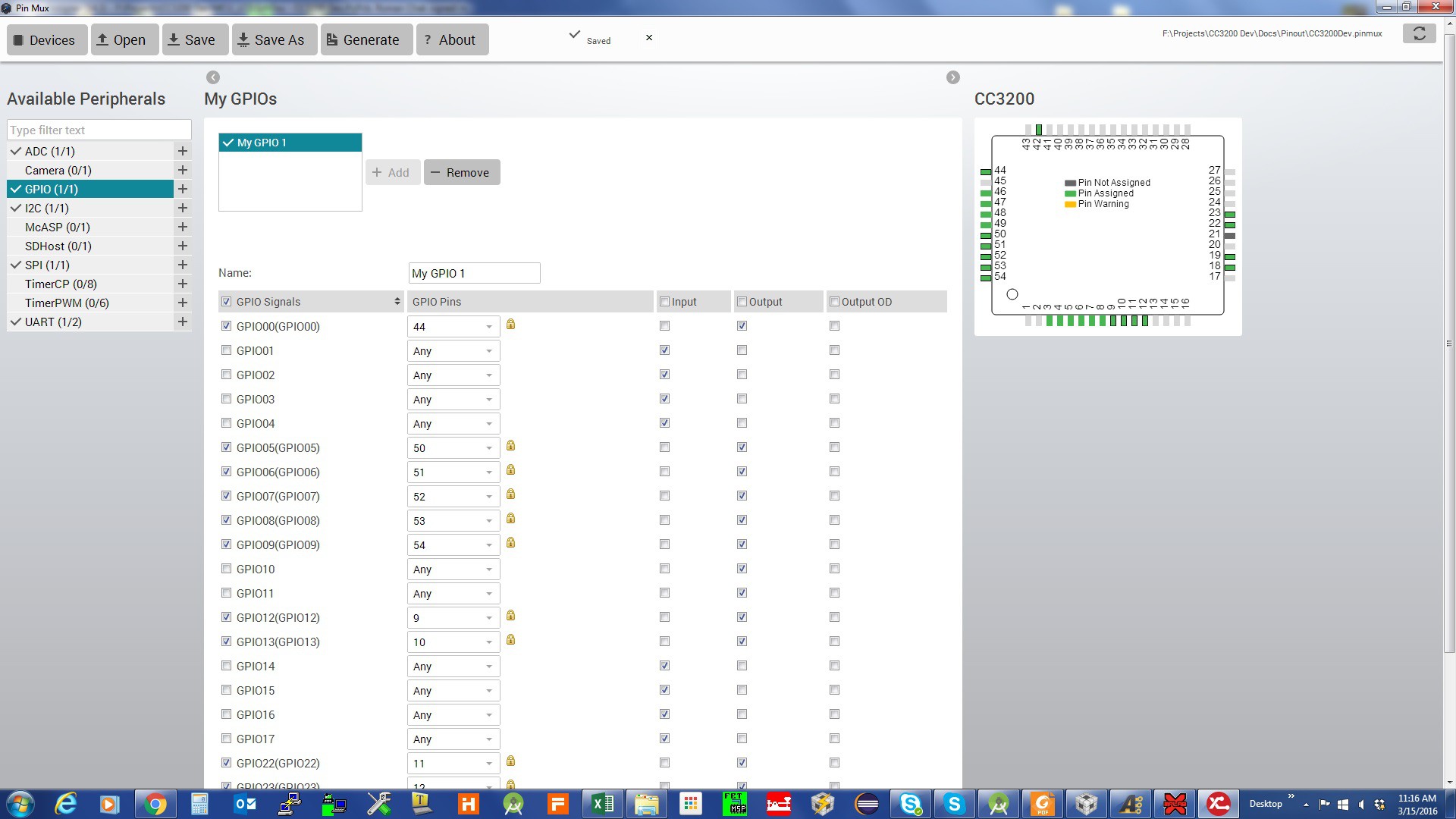
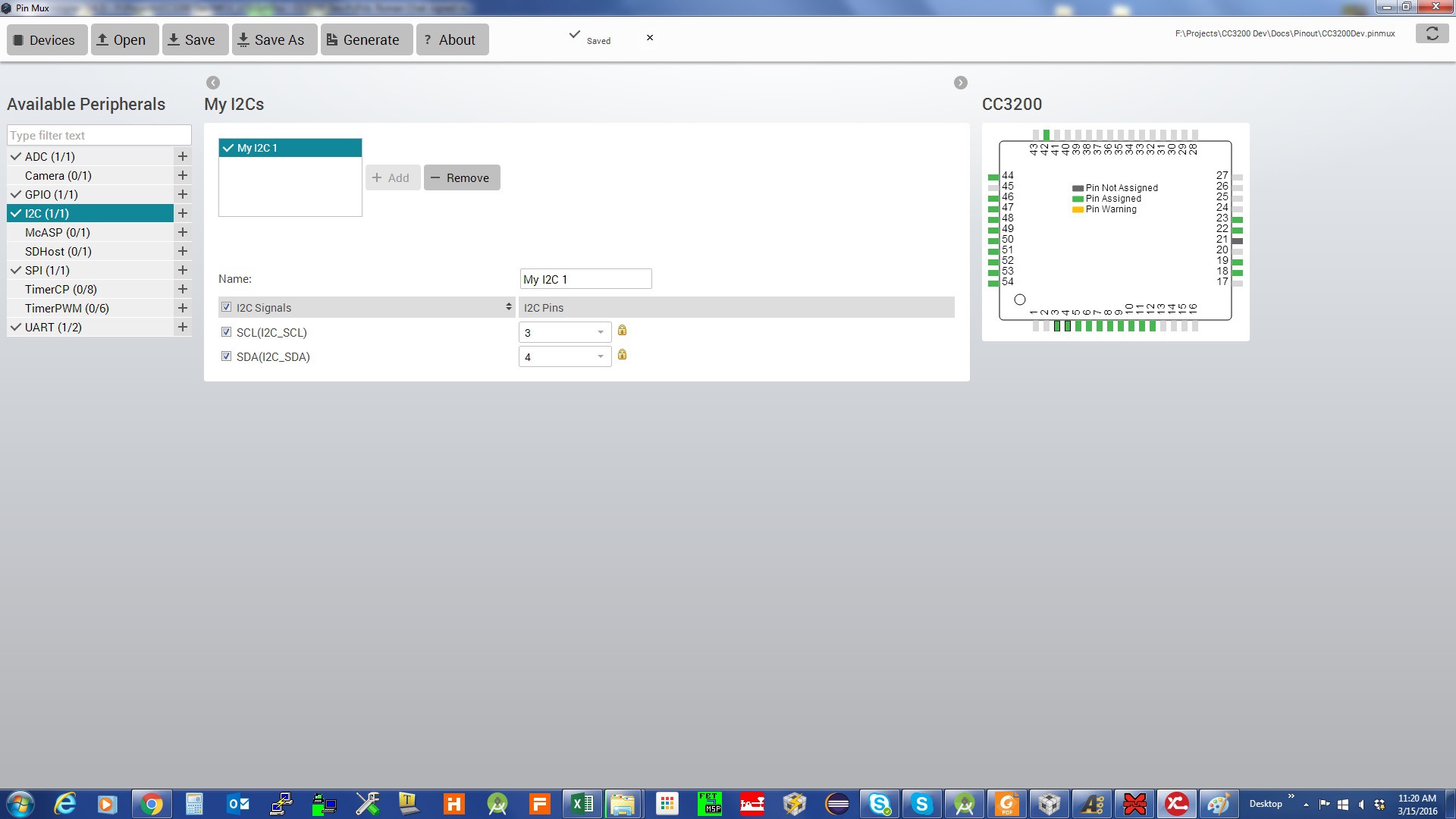
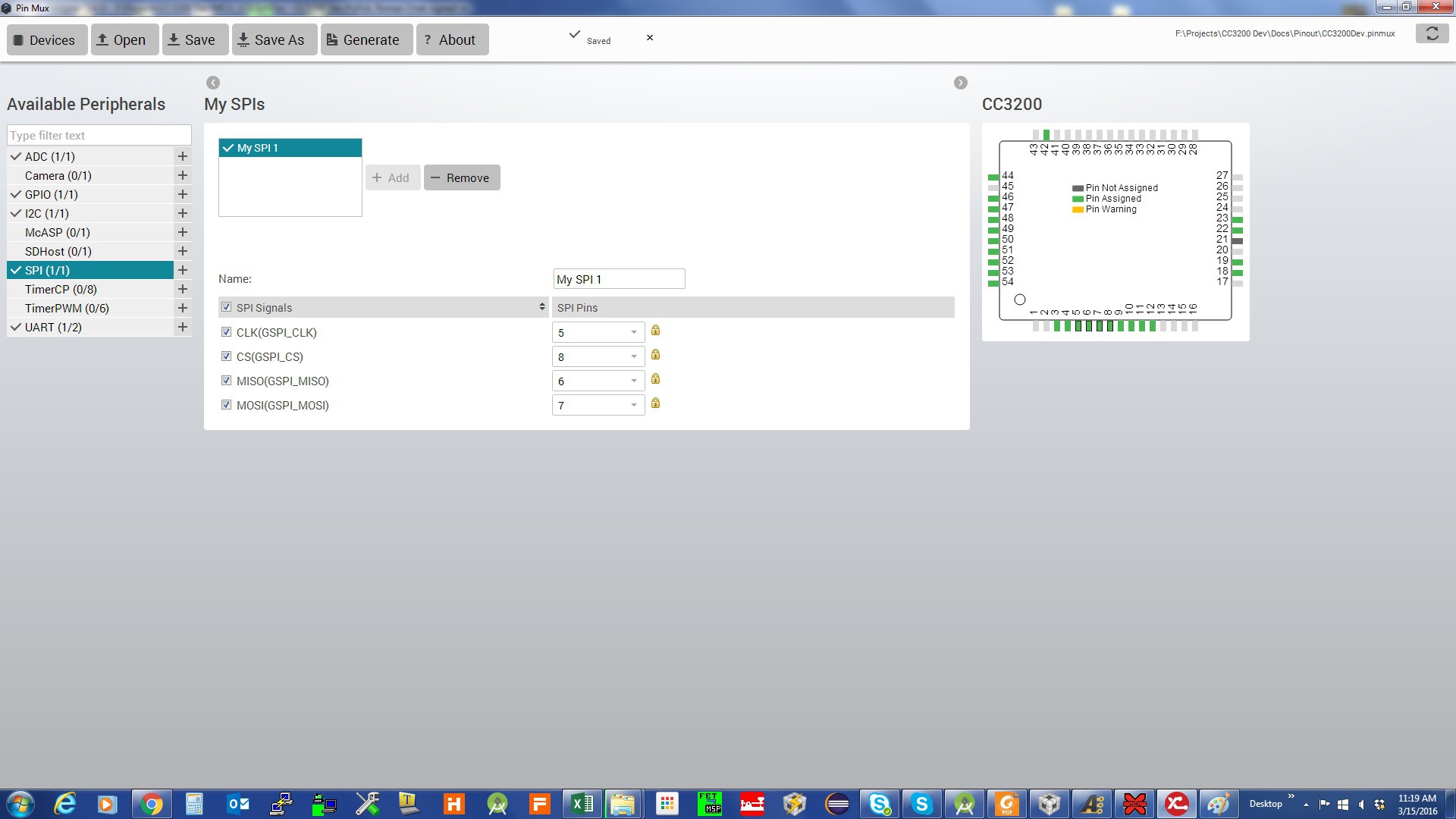
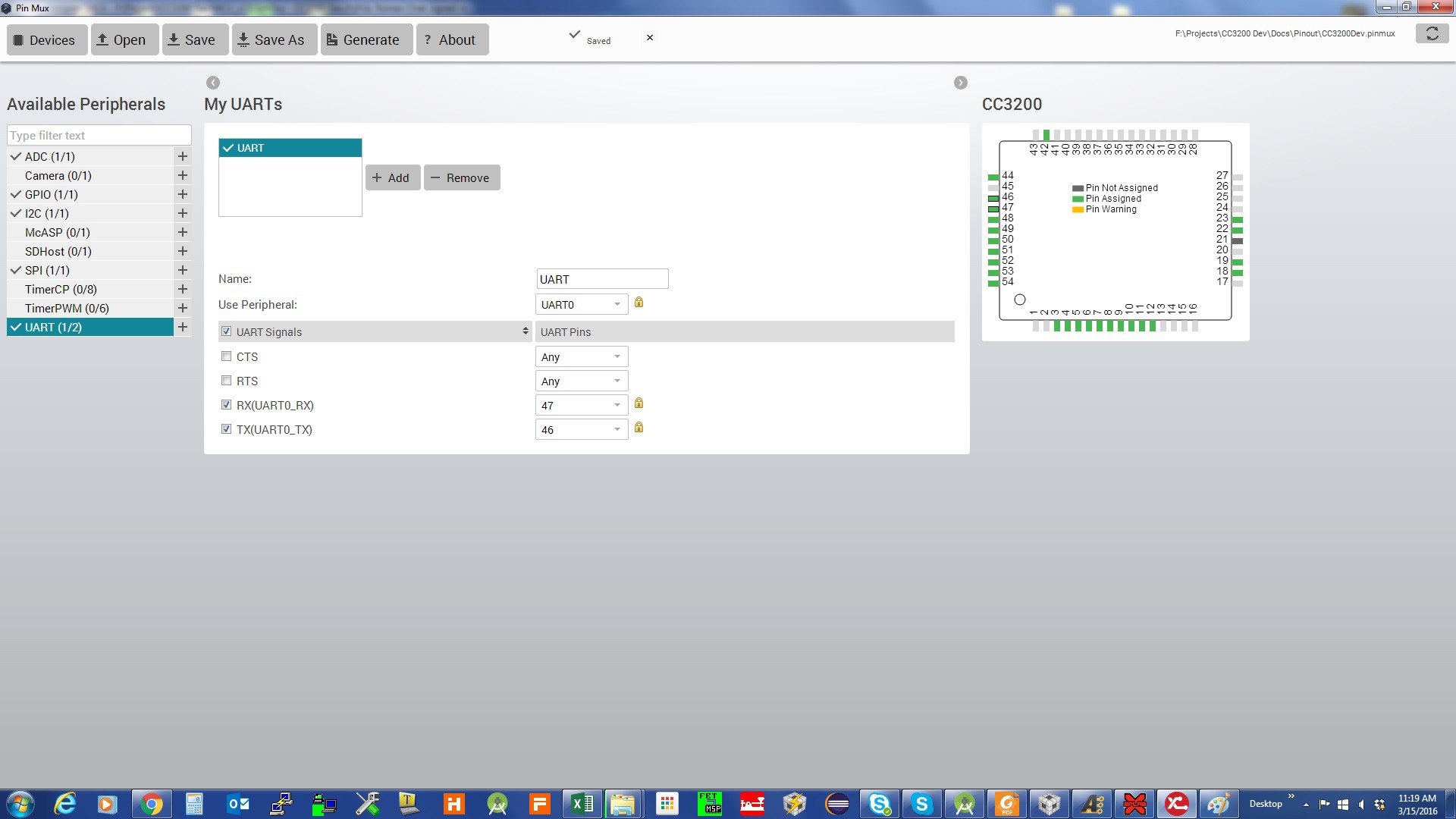
Discussions
Become a Hackaday.io Member
Create an account to leave a comment. Already have an account? Log In.